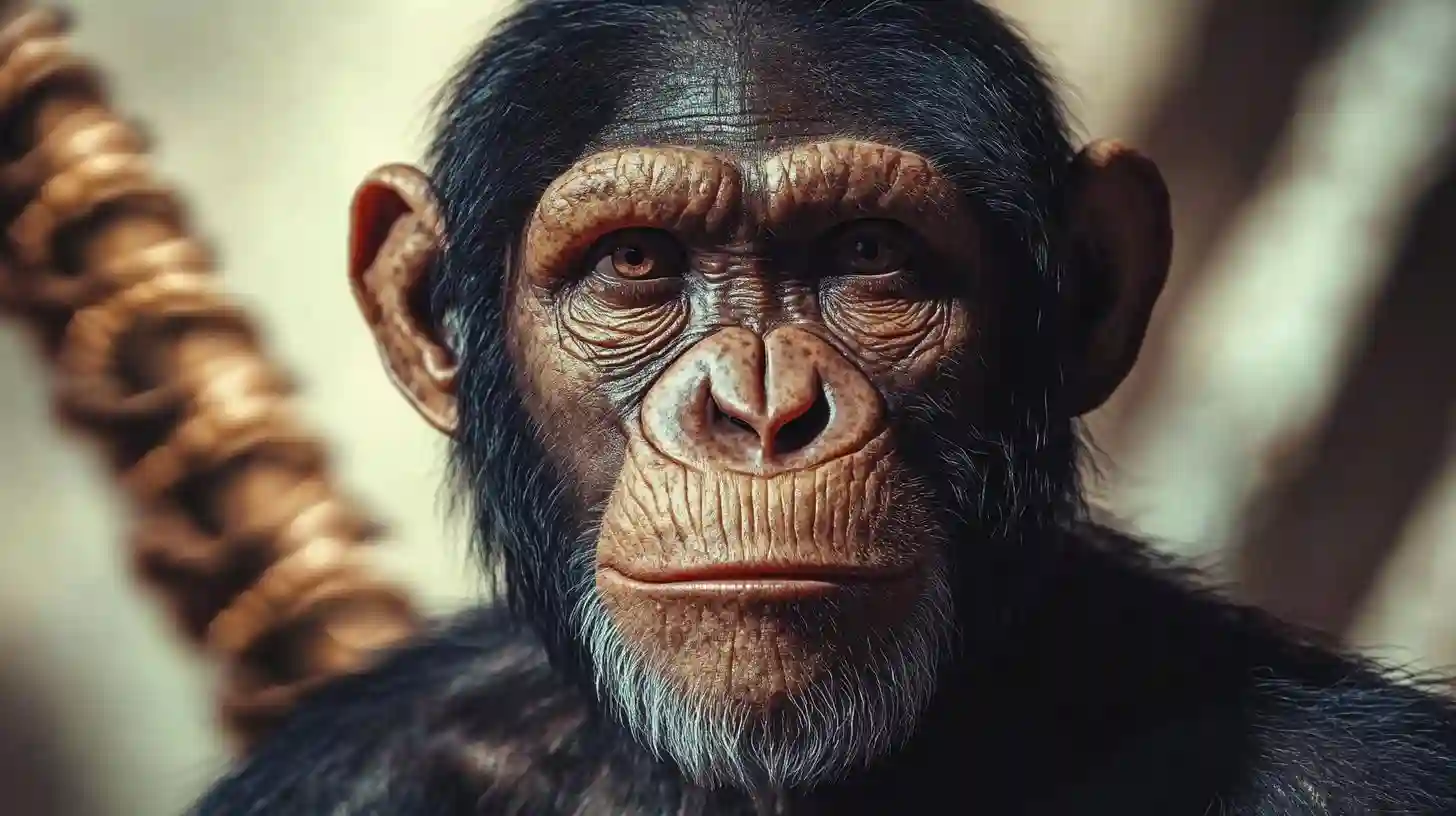
Contentnesthub

Scientists have long been fascinated by the similarities and differences between humans and our closest living relatives, the chimpanzees. A recent study has shed new light on this relationship by revealing that humans and chimpanzees share up to ninety-eight percent of the same DNA. This staggering revelation is part of a larger conversation about evolutionary biology and the genetic foundations that link species together in the tree of life. The study utilized advanced sequencing technologies to analyze the genetic material of both species, offering unprecedented insights into the genetic similarities that have persisted through millions of years of evolution.
The genetic resemblance between humans and chimpanzees emphasizes the shared ancestry that both species descended from a common ancestor that lived approximately six million years ago. This common genetic heritage serves as a profound reminder of the evolutionary processes that have shaped not only the physical characteristics of both species but also behavioral traits and social structures. DNA, being the blueprint of life, carries essential instructions that govern everything from physical form to even aspects of behavior and cognition. Thus, it is not surprising to find that parallels exist between the ways in which humans and chimpanzees express certain traits.
The study delves into the specifics of this genomic overlap, underscoring that most of the shared DNA consists of genes that are crucial for basic cellular functions, growth, and survival. Many of these genes are involved in processes such as DNA repair, immune responses, and neural development. Some researchers suggest that the genetic similarities in these vital areas could explain certain behavioral attributes seen in both species, including social bonding, communication, and even emotions. Such behaviors have long fascinated primatologists and anthropologists, who seek to understand the extent of emotional depth and social complexity found in chimpanzees.
One of the remarkable aspects of this research is how it highlights the genetic nuances that account for the observable differences between the two species. While ninety-eight percent may seem like a vast overlap, it is the remaining two percent that accounts for the distinct attributes of humans, including advanced cognitive abilities, complex language skills, and a unique capacity for abstract thinking. Researchers argue that even minor genetic differences can have significant implications for behavior and capability. This underscores the idea that, while physical similarities abound, it is the differences that largely shape the human experience.
The implications of the study extend beyond the biological realm into ethical and conservation discussions. Understanding the genetic proximity of humans and chimpanzees has profound implications for how we view and treat the latter. As humans continue to encroach upon their habitats through deforestation, poaching, and the illegal pet trade, there remains an urgent need to advocate for the protection of chimpanzees and their environments. This genomic connection could foster a greater sense of responsibility towards wildlife conservation efforts by enhancing empathy towards these primates, with whom we share such a significant portion of our genetic blueprint.
Moreover, this genetic insight fosters discussions about the nature of consciousness and self-awareness. Research continues to unveil that chimpanzees possess advanced cognitive traits, including tool use, problem-solving abilities, and social manipulation. Exploring these shared cognitive traits can inform our understanding of the evolutionary milestones that led to the development of human intelligence. Questions arise about the moral implications of our treatment of other sentient beings that share such a close biological tie. Do shared genes imply shared rights in the ethical discourse surrounding animal welfare?
As technology and methodologies advance, the possibilities for further research into the genetic connections between species are vast. Future studies promise to elucidate the nuances of genetic expression, how environment and nurture play roles in shaping behavior, and the evolutionary contexts in which these traits developed. The shared genetic heritage of humans and chimpanzees serves as a reminder of our connections to the natural world, urging a reconsideration of both our identity and our responsibilities to the other residents of our planet. Through understanding, respect, and conscious effort, there remains hope that we can ensure not only the survival of chimpanzees but foster deeper relationships with all forms of life that enrich our shared existence on Earth.